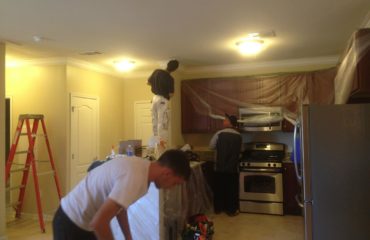
Since May is National Electrical Safety Month, we thought we’d chime in with some home electrical safety tips we think everyone should be familiar with. After all, when you’ve poured so much time, energy, and money into making your home what you want it to be, the last thing you want is an electrical fire to ruin everything.
We’ll start out with some easy home electrical safety tips you should start practicing today, if you aren’t already!
-
NEVER
Run extension cords across doorways or under carpets.
-
NEVER
Overload outlets. Plug just one high-wattage appliance into an outlet at a time.
-
NEVER
Use extension cords with frayed edges, that are covered in duct tape, or that hang loose from the outlet.
-
ALWAYS
Install permanent circuits instead of using extension cords for long-term electrical arrangements.
-
ALWAYS
Keep lighting fixtures on level circuits, using bulbs that burn the recommended wattage.
-
ALWAYS
Make sure your home has ground fault circuit interrupters (GFCIs) in basement, laundry, and kitchen areas.
Those aren’t so hard! The following are signs that there may already be an electrical problem in your home. If you encounter any of these, you could be at risk of electrical fire and should contact a professional. We think it’s important that our clients are familiar with home electrical safety issues, since the average homeowner wouldn’t necessarily peg these as signs of a problem. Get educated and protect your hard-earned assets!
-
Small fridges that give you a shock.
These may have worn-out insulation in the internal wiring and can be pretty dangerous, especially if the fridge is on a concrete floor (which conducts electricity) or on a floor that tends to be damp.
-
Wobbly ceiling fans.
It could be that the fan is installed on a box that shouldn’t be supporting one.
-
GFCI outlets that trip often.
The cause may be a worn-out GFCI outlet receptacle.
-
Outlets that are warm to the touch.
Many risks could be at play here, including an electrical load that’s too large, undersized wiring, or a loose electrical splice.
-
Wobbly switches.
Your device isn’t mounted properly to the electrical box and could be at risk of starting a fire.
-
Flickering lights or lights that trip the circuit breaker.
A likely cause is a worn-out lighting fixture that should be replaced pronto. It could also be a loose wiring splice.
All of us at VCG Construction really care about our clients’ homes, so thanks for taking the time to read this little electrical safety lecture. Promise next week we’ll be back with our usual home remodeling tips and trends!



